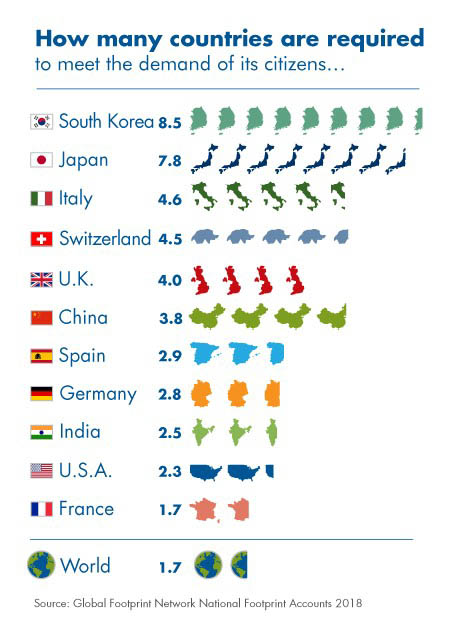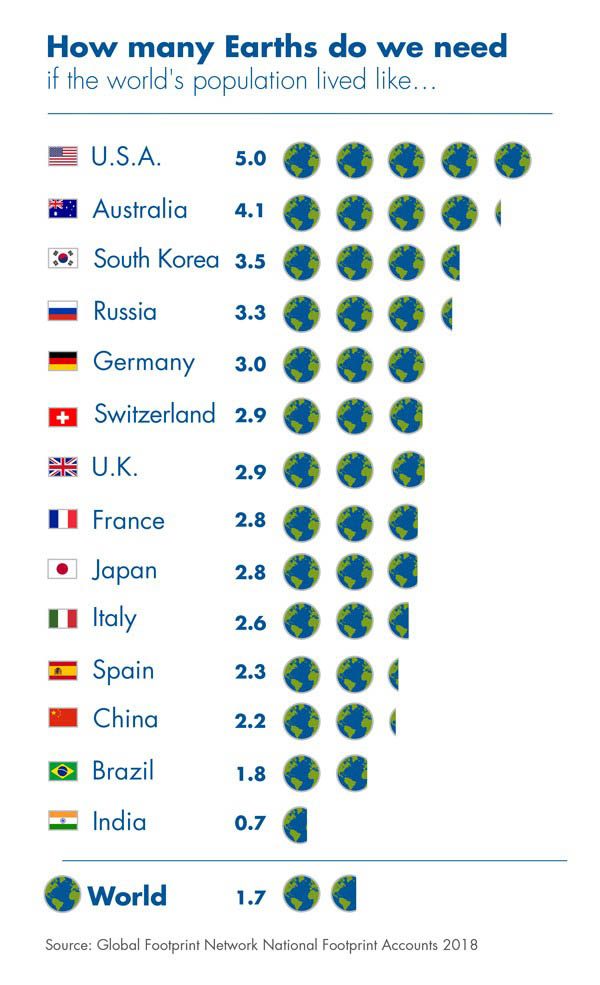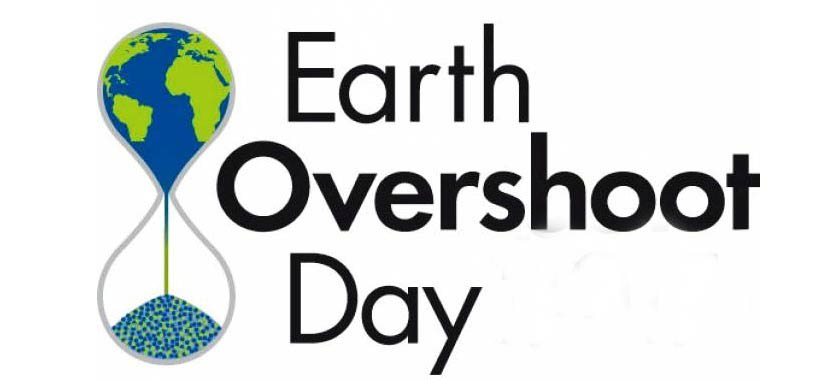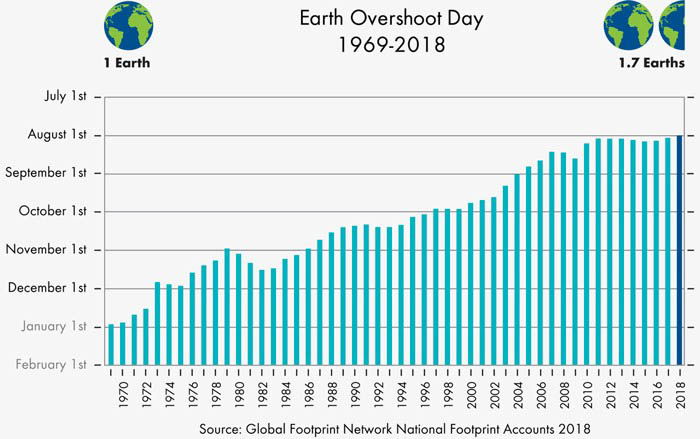This Wednesday, August 1, 2018, marks the day that humanity will have used the natural resources available for the entire year, according to the Global Footprint Network (GFN), warn the ANP|WWF and ZERO.
Earth Overshoot Day is the date when humanity's annual pressure on nature exceeds what Earth's ecosystems can provide that year, and arrived one day earlier than last year.
“The date, which moved from the end of September in 1997 to the beginning of August in 2018, symbolizes the unprecedented pressure that humanity and human activities are exerting on nature and its resources. According to the GFN, 1,7 lands would be needed to sustain the current estimated level of resources needed for human activities», stress the two environmental organizations.
“These data are clear about the need to produce and consume very differently. Overshoot Day tells us that we are pushing the limits of the planet with increasing intensity, a trend that is urgently needed to change for the benefit of Humanity and its quality of life, as without this Planet we cannot survive», says Ângela Morgado, Executive Director of ANP|WWF.
Francisco Ferreira, from ZERO, added that “it is common to talk about the importance of changing lifestyles as a key element for building a sustainable society. However, the necessary change towards sustainability will not be achieved only by individual action by citizens. Political and business action in different sectors is crucial».
As global biodiversity continues to decline sharply and the impacts of climate change are becoming definitive, Earth Overshoot Day is a warning for individuals, countries and the global community to urgently rethink their actions to protect forests, oceans, wildlife and freshwater resources, helping to achieve sustainable development.
"We have a critical window of opportunity until 2020 to implement commitments and actions and reverse natural losses by 2030, in order to help ensure the health and well-being of people and our planet", say the spokespersons of both environmental conservation NGOs, which advocate the following actions:
>> The bet on a Circular Economy, where effectively the use and reuse of resources is maximized, should be a transversal priority to all public policies. The focus should be on reducing the use of materials, promoting reuse and extending the lifespan of goods and equipment. To be effective, we will have to change the “use and throw away” paradigm, heavily based on recycling, incineration and landfill, to a “less but better quality” paradigm, with a strong focus on reduction, reuse and repair and seeking to offer services as an alternative to selling goods.

>> Promoting a healthy and sustainable diet (starting in schools, but integrating comprehensively across society). In Portugal, this will mean bringing the Portuguese food balance closer to what is recommended in the food pattern of the food wheel, an objective, from all points of view, desirable.
>> The promotion of sustainable mobility based on different strategies can make a very important contribution, namely by improving access to and operating conditions for public transport (for example, favoring specific corridors and improving the articulation between different modes of transport, level of interfaces, timetables and ticketing); provision of infrastructure and conditions that encourage smooth mobility (walking, cycling); transport sharing (car-sharing) or even the transition to electric mobility.
>> The role of the citizen, each one of us can also play a very important role, from the outset through the pressure that we can put on the entire production system.
>> Demand at the political and business level the democratization of sustainability. It makes no sense that anyone who wants to be sustainable should be penalized in terms of price or difficulty in accessing necessary goods. It is important that the price to be paid is fair, but it is very important that less sustainable solutions are penalized while sustainable options are encouraged. Pressure from all of us can make a difference.

>> Take it one step at a time. Propose, for example, the goal of making one change per month, to make your daily life more sustainable, and share it with your friends and colleagues (not only will you be able to sensitize them, you will also be able to increase their “incentive” to keep your interest).
«Avoiding using the environmental credit card is an investment in our well-being and quality of life. Living with full respect for the generous limits of Planet Earth is the only way to guarantee a better future for everyone», stress the two NGOs.
Learn more www.overshootday.org and follow the conversation on social media at #movethedate.





















Comments